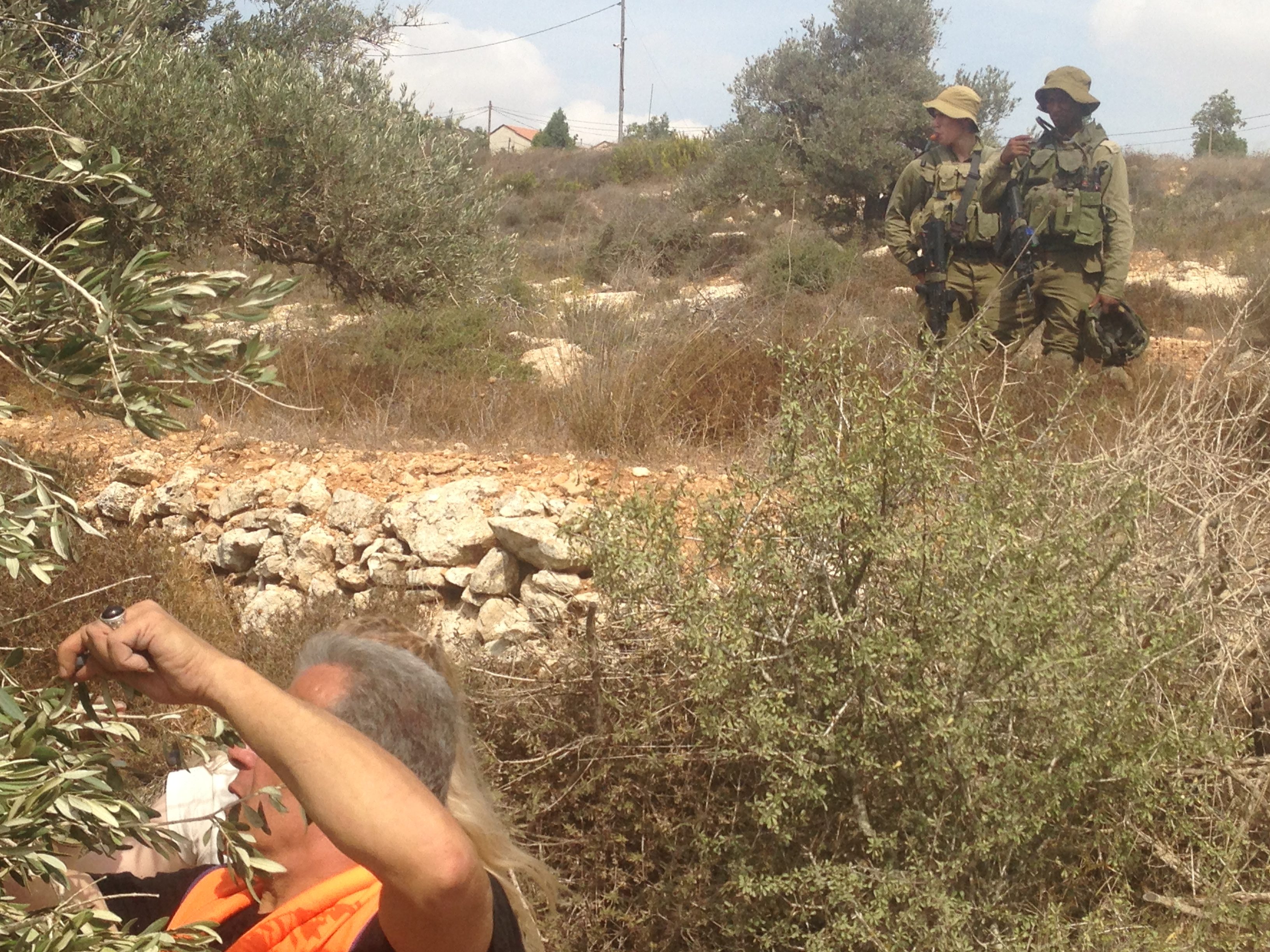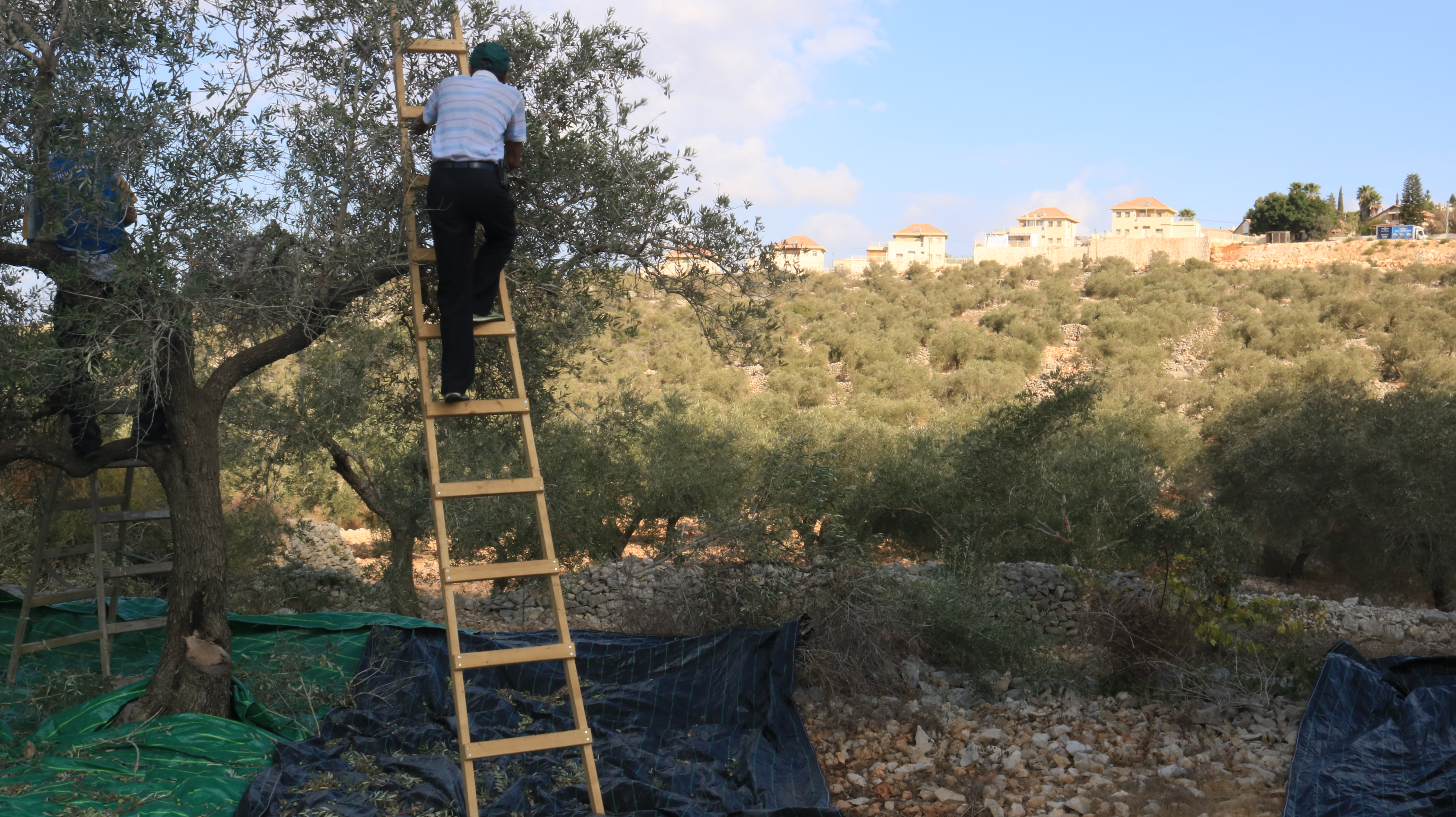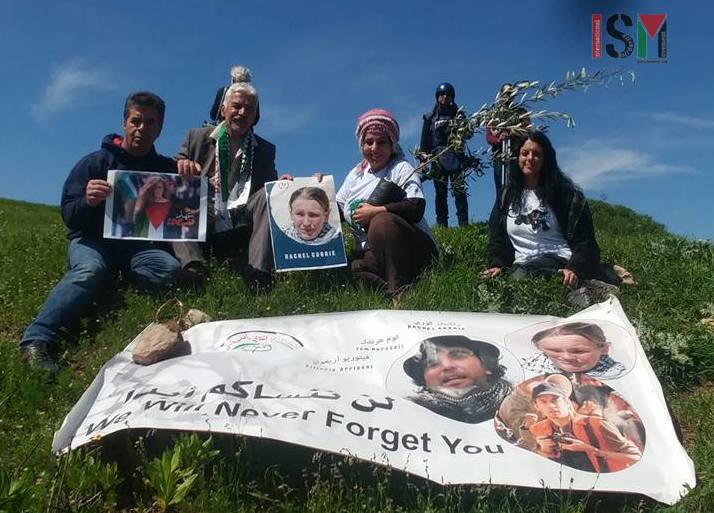Tag: Olive Trees
-

Video: Israeli soldiers, police harass olive pickers in As-Sawiya village
October 7, 2018 | International Solidarity Movement | As-Sawiya, Occupied Palestine A group of Israeli soldiers, one Israeli policeman, and one Israeli settler harassed a group of Palestinian and international olive pickers in As-Sawiya village yesterday, demanding identification and threatening to expel the harvesters from the area. Soon after the group began work,…
-

Call to action: Olive Harvest 2018 – Join ISM now!
International Solidarity Movement | Ramallah, occupied Palestine Tthe International Solidarity Movement (ISM) is issuing an urgent call for volunteers to join us for the 2018 Olive Harvest Campaign at the invitation of Palestinian communities. The olive tree is a national symbol for Palestinians. As thousands of olive trees have been bulldozed, uprooted and burned by Israeli settlers…
-

Palestinian and International activists plant olive saplings on village land ordered for confiscation by Israel in Burin
17/03/2018| International Solidarity Movement Palestinians and International activists successfully planted dozens of olive saplings in the north of West Bank in the village of Burin near Nablus. Palestinians and Internationals together laid pictures of prominent activists in front of the planted saplings, some of these activists were killed by the Israeli army others are Palestinian…
